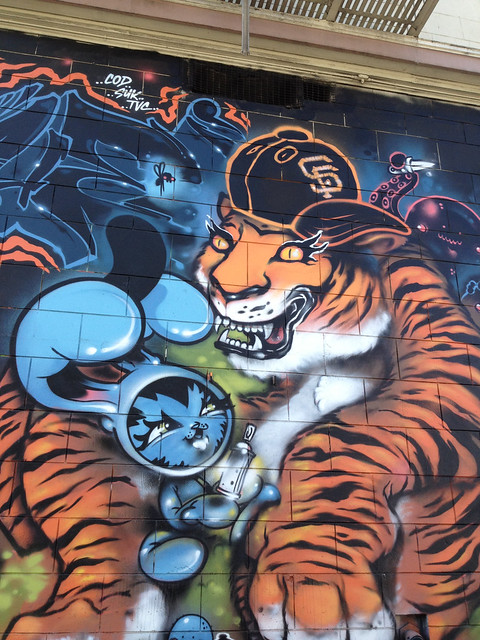
Americans today aren't interested in slogans and sound bites. They want the candidates to offer them a vision, but so far neither Mitt Romney nor President Obama has done so. …
So writes Drew Westen, a professor in the Departments of Psychology and Psychiatry at Emory University, in the
Los Angeles Times.
Well, maybe, but my experience of working in politics suggests that something much harder to overcome than a deficit of vision afflicts our political leaders. Yes, they are worried about their ability to raise money from the rich if they speak in an impolitic manner. And they've often been in thrall to a conventional wisdom that says this is country of "the center" -- a myth that only extremist nutcases want to rock any boats.
But, in California for two decades, and in the rest of the country increasingly, bland, ultra-careful politicians merely reflect the reality that this is a country whose people lack a unifying moral vision. We have simply become too diverse for that, at least in the contemporary moment. Each community among us looks to different cultural traditions and different people whose pronouncements are accorded some legitimacy -- but, by and large, few of us credit other communities' moral authorities.
I first understood this when working to defeat an anti-immigrant California ballot measure in the early 1990s. This would have denied schooling and medical care to undocumented children. In some communities, it was an obvious moral atrocity; how could we penalize children? Among others, it seemed only fair. And there was literally no public figure -- no bishop, no academic wise person, no politician -- who could speak and
be heard across the values chasm that yawned between supporters and opponents.
That was California, two decades ago. The whole country is now experiencing similar fragmentation into communities that simply don't recognize each other's values. In a democracy, politicians have to assemble coalitions that amount to more than half of us. Naturally it behooves them to campaign without taking stands that alienate fractional constituencies. But each clamoring group wants to be sure it is not being tricked, so demands ever tighter allegiance to whatever it centrally values -- outlawing abortion or legalizing gay marriage; no new taxes ever or extending health care to all. We want to hem our leaders in -- then we fault them for failing to lead.
I find President Obama infuriating because he seems so much more interested in formulating complex policy solutions (preferably bipartisan ones) than in doing the hard work of creating a dominant political coalition that would enable him to enact them. He's clearly interested in his own re-election, but he doesn't seem to think it part of his job to build a larger Democratic party that might be strong enough to win his policy fights. He's a curious combination of political and apolitical; only a second term can reveal whether there's a vision in the man beyond the extraordinary fact that the "skinny guy with the funny name" could ever become President.
Meanwhile, the country's democracy is running off the rails because we lack unifying values that can bridge our smaller segments. We suffer from what the wise
Ed Kilgore labeled
a breakdown of social solidarity that runs deeper than the wallet.
In history, the experience of overcoming threats to the nation has helped to establish social solidarity, even across communities who want no part of each other. The threat of fascism and imperial Japan forced a broad moral vision on the World War II generation -- there's a reason that a racist nation could move toward a broader citizenship for all in the decades after that existential crisis.
Contemporary shocks to the nation -- the 9/11 attacks and the ongoing, unequally distributed, Lesser Depression -- have not evoked bridging leadership. Quite the contrary, politicians (mostly Republican) have manipulated the response to real threats to stoke divisions rather than to bring the country together.
How big a crisis would it take for a majority to embrace a unifying moral vision? We face a threat of unparalleled magnitude, the threat of human-induced climate change making most current patterns of life unsustainable. These days, we're farther than ever from a consensus on what really matters. But threats can concentrate the mind and the body politic.









































